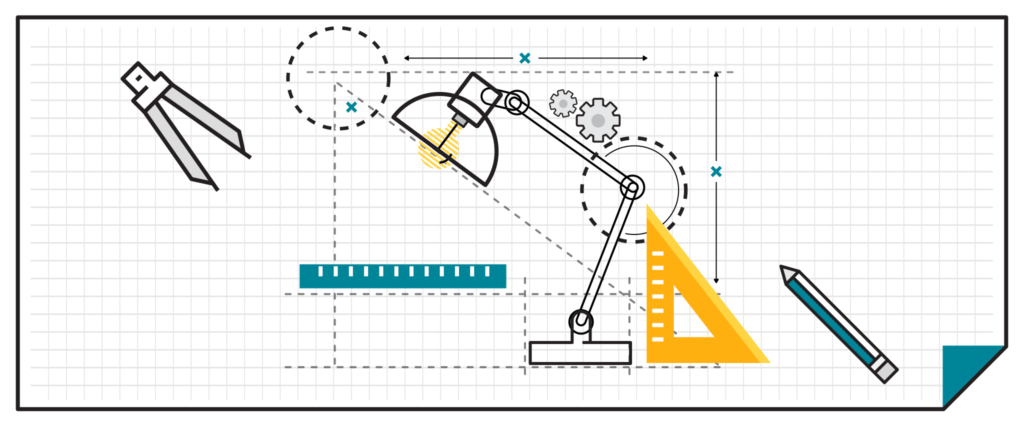Article
30+ Definitions of “Innovation”

What is Innovation? 30+ definitions lead to one fresh summary: Fresh Thinking that Creates Value
The Problem
From the Economist to Wikipedia to Websters to Barack Obama to Innovation Zen, around the globe, we seek tangible answers for an intangible question: What is Innovation? Definitions vary and people mean different things. After reviewing dozens of definitions from a diverse set of sources, I propose a consensus on a simple definition…as a basis for future conversations about Innovation. Note the red and green highlighting in the following definitions that help lead to the consensus.
The 30+ Innovation Definitions
- “fresh thinking that creates value” Richard Lyons via Economist article cited below
- “new products, business processes and organic changes that create wealth or social welfare” OECD think tank via Economist article cited below
The Economist. Something new under the sun: A Special report on innovation, Vaitheeswaran, Vijay. October 13th, 2007, pg. 4
- “Technically, “innovation” is defined merely as “introducing something new;” there are no qualifiers of how ground-breaking or world-shattering that something needs to be—only that it needs to be better than what was there before. And that’s where the trouble starts when an organization requests “innovation services” from a consulting firm. Exactly what are they really requesting? The fact is, innovation means different things to different people.”
Business Week.
- “Innovation is the specific instrument of entrepreneurship… the act that endows resources with a new capacity to create wealth.”
Peter Drucker at Quotations Page
- Innovation is defined “as change that creates a new dimension of performance“
Peter Drucker at https://en.wikipedia.org/wiki/Innovation
- “Innovation: a creation (a new device or process) resulting from study and experimentation; the creation of something in the mind; the act of starting something for the first time; introducing something new“
Wordnet
- “Innovation: First of all, here is my own definition of innovation: ‘invention refers to new concepts or products that derive from an individual’s ideas or from scientific research. Innovation, on the other hand, is the commercialization of the invention itself”
Merriam-Webster Dictionary
- “The term innovation may refer to both radical and incremental changes to products, processes or services. The often unspoken goal of innovation is to solve a problem. Innovation is an important topic in the study of economics, business, technology, sociology, and engineering. Since innovation is also considered a major driver of the economy, the factors that lead to innovation are also considered to be critical to policymakers.”
Wikipedia
- “Something new or different introduced”
Dictionary.com
- “Innovation is converting ideas to numbers”
Information Week
- “Innovation is a process, involving multiple activities, performed by multiple actors from one or several organizations, during which new combinations of means and/or ends, which are new for a creating and/or adopting unit, are developed and/or produced and/or implemented and/or transferred to old and/or new
Joerg Gemuenden at Innovation.cc
- “Innovation is then simply new technology, i.e. the systematic application of (new) knowledge to (new) resources to produce (new) goods or (new) services”
Maciej Soltynski at Innovation.cc
- “Any creative idea, getting implemented or realized successfully, is Innovation.”
Hexaware Blog
- “The creation of new products and/or services”
Investor Words
- “Innovation is imaginative activity fashioned so as to produce outcomes that are both original and of commercial value“
Innovation Productivity Blog
- “Something newly introduced”
The Free Dictionary
- “PEOPLE using new knowledge and understanding to experiment with new possibilities in order to implement new concepts that create new value“
Think Smart Blog
- Innovation: “The practical translation of ideas into new or improved products, services, processes, systems or social interactions”
The University of Melbourne
- “Innovation. Something new or improved, having marketable potential, including (1) development of new applications for existing technologies, (2) refinement of existing technologies, or (3) development of new applications for existing technologies.”
Zyn
- “Innovation lowers the costs and/or increases the benefits of a task”
- “Innovation means venturing away from familiar ground into uncharted territory“
SCS
- “Innovation needs structure. We need to originally explore the regions of creativity so we can bring method to the madness of originality. We need to expand that special resource known as innovativeness so that we are not dealing with a finite resource but with a renewable one. We need to give everyone in an organization the chance to develop innovative competencies. We need to make the systematic application of innovation real. “
Real Innovation
- “Innovation is the creation of the new or the re-arranging of the old in a new way”
Michael Vance at Famous Quote
- “To innovate is not to reform”
Innovation Zen
- Innovation: “the introduction of something new“
Edmund Burke at Famous Quote
- “Innovation is really about responding to change in a creative way; it’s about generating new ideas, conducting R&D, improving processes or revamping products and services. At another level, it’s also a mindset in your business; your employees are always focused on continuous improvement and constantly thinking outside of the box”
BDC
- “The successful exploitation of new ideas”
Ber
- “Innovation is a process of taking new ideas through to satisfied customers. It is the conversion of new knowledge into products and services”
Vadim Kotelnikov at 1000 advice
- “Innovation: The process of creating a product or service solution that delivers significant new customer value. The process begins with the selection of the customer and market, includes the identification and prioritization of opportunities, and ends with the creation of an innovative product or service.”
Ulwick, Anthony W., What customers want. New York: McGraw-Hill 2005, Glossary,180.
- “Innovation is not the result of thinking differently. It is the result of thinking deliberately (in specific ways) about existing problems and unmet needs.”
Razeghi, Andrew. The Riddle. San Francisco: Jossey-Bass, 2008,1, 24.
- “Innovation is the embodiment, combination, and/or synthesis of knowledge in novel, relevant, valued new products, processes, or services.”
Leonard, Dorothy, and Swap Walter. 1999. When Sparks Fly. Boston: Harvard Business School Press, 7.
- “Innovation is the creation of something that improves the way we live our lives”
Barack Obama quoted in Business Week’s “In” subsection, p. 6, November 2007
The Consensus
For the most part, the aforementioned definitions hit on two strong chords of what Innovation really is. As a consensus summary definition, Innovation is
a) something fresh (new, original, or improved)
b) that creates value
Something new is not enough for the definition of innovation. There are plenty of cases where something new has no new value ( a new color of a product or a new chemical produced that does nothing). Sometimes, the value creation results because the item is simply useful to us. We can create a lot of fresh or new things that are of no use and no value. It must create value to be innovation.
Also note that the “something” could be a process, product, or service and can start as small as your ideas and thoughts in your brain. In that case, it might just be innovative thinking.
On a parallel note, Sir Ken Robinson, author of Out of Our Minds: Learning to be Creative, and a leading expert on innovation and human resources, suggested an almost exact definition for creativity when he said: “In fact, creativity, which I define as the process of having original ideas that have value, more often than not comes about through the interaction of different disciplinary ways of seeing things.” Although he used the definition for creativity, it’s a strong synonym of innovation.
Here is a good example: One of my colleagues discovered a new process to make the sugar substitute, Xylitol, for 1/10 of the cost. Xylitol (found in Trident & Dentyne gum) has the unique capability to actually help fight cavities. Read more about the company here. As a result of this “innovation”, Xylitol could become cheap enough (valuable savings) for us to use it more regularly, and thereby, improve our teeth while we consume the sweets that typically ruin our teeth. Note that the process was something new that created value.
Looking to dive deeper into the process of innovation? Check out the 10 principles of innovation below!
Innovation Principle #1: Build It Into the Culture
Innovation Principle #2: Creativity is Essential to Survive
Innovation Principle #3: True Innovation Generates Value
Innovation Principle #4: Present a Challenge
Innovation Principle #5: Frame a Beautiful Problem
Innovation Principle #6: Ideate Alone First
Innovation Principle #7: Seek Inspiration
Innovation Principle #8: Focus on Options First, Not the Solution
Innovation Principle #9: Keep It Open
Innovation Principle #10: Utilize Anonymity
Feedback
What other good definitions am I missing? Do you agree/disagree with my consensus on what “innovation” is? I look forward to hearing your thoughts on one of the most important words that will shape the future of our world and business.








